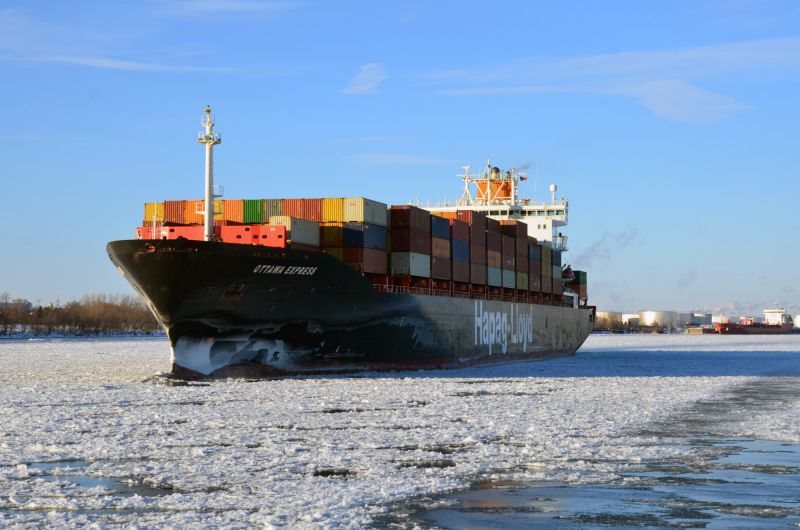Logistics

April 27, 2021
Striking Montreal Port Workers May Be Forced Back to Work
Written by Sandy Williams
Longshore workers at the Port of Montreal began on Monday what is hoped to be a short-term strike. All port operations ceased at Canada’s second busiest port except for liquid bulk, Oceanex service and the Vittera grain terminal. Dock workers will continue to handle COVID-19-related medical supplies if the boxes are so marked, said Michel Murray a spokesperson for the Canadian Union of Public Employees.
The port estimates shipment of nearly 10,000 TEUs has been halted, causing delays in rail operations and concerns for ships on route to the port.
“After several strike episodes in 2020 and 2021, which have had and continue to have serious economic and logistical impact, it is mission-critical that the Port of Montreal be able to fully and sustainably play its strategic role as an economic engine at the service of the local population and SMEs without interruption,” said Martin Imbleau, Montreal Port Authority president and CEO, in a statement Sunday.
Strikes last summer resulted in 80,000 TEUs to be grounded or rerouted and 20 vessels to be diverted to competing ports, said the Montreal Port Authority in a press release. The port handles an average of $275 million in goods every day including agriculture, pharmaceuticals and construction equipment. A work stoppage is estimated to incur economic losses of $10 million to $25 million per day.
 The more than 1,000 members of CUPE 375 have been working without a contract since the last one expired in 2018. A 72-hour notice was issued by CUPE on Friday, prompted by an increase in required shift hours that was to begin this week. Murray said the change from five-hour shifts to seven-hour shifts was in response to threatened labor action as negotiations between the union and the Maritime Employers Association stalled. The union says it offered to withdraw its strike notice if MEA agreed to end pressure tactics like the shift change.
The more than 1,000 members of CUPE 375 have been working without a contract since the last one expired in 2018. A 72-hour notice was issued by CUPE on Friday, prompted by an increase in required shift hours that was to begin this week. Murray said the change from five-hour shifts to seven-hour shifts was in response to threatened labor action as negotiations between the union and the Maritime Employers Association stalled. The union says it offered to withdraw its strike notice if MEA agreed to end pressure tactics like the shift change.
Before the strike even began, Labor Minister Filomena Tassi said the government was prepared to introduce back-to-work legislation that would end the labor action.
Tassi tweeted on Sunday, “The current work stoppage at the port is causing significant and potentially long-lasting harm to Canada’s economy, and is adding stress to supply chains already under significant strain due to #Covid19.”
The legislation is to be debated on Tuesday afternoon and, if passed, would require union members to return to work and prevent any new strikes or lockouts until a new contract agreement is signed. The bill would extend the previous agreement until a new one can be negotiated by the parties, alone or with mediation.
“Once again the Trudeau Liberals are acting like Conservatives, siding with bosses against workers by meddling in the bargaining process,” said CUPE National President Mark Hancock. “There can never be free, fair collective bargaining in Canada under the threat of back-to-work legislation.”
CUPE says the back-to-work legislation would infringe upon workers’ rights to free and fair bargaining and noted that “these types of bills have repeatedly been found to be unconstitutional by the courts.”
“Employers have no incentive to bargain in good faith when they know the government will come to their rescue,” said CUPE National Secretary-Treasurer Charles Fleury. “This is disgraceful conduct from a government that pretends to be a friend to working people.”
By Sandy Williams, Sandy@SteelMarketUpdate.com






